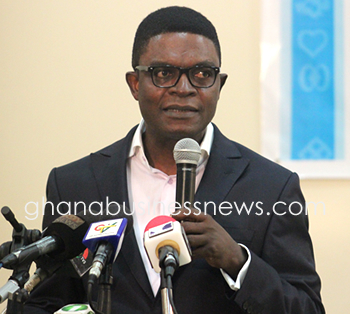IDEG calls for multi-party democracy fund

The Institute for Democratic Governance (IDEG) has proposed the establishment of a multi-party democracy fund to support political parties to develop their manifestoes, policies and annual conferences.
The fund, which would assist the parties to translate their manifestoes into four-year medium term policy programmes and policy oriented annual conferences, should be instituted and made mandatory for political parties.
Dr Emmanuel Akwetey, the Executive Director of IDEG, made the proposal in Accra at a Civil Society Organisations (CSOs) consultation on local governance reform and constitutional amendment.
He explained that such a fund would strengthen the policy and research departments of political parties in formulating pragmatic development policies and transform the parties from mere electoral machineries to development oriented organisations.
“The financial support to the parties will help reduce the reliance on party financiers which in turn would reduce the monetization of politics in the country, curb cronyism and corruption when parties come into government,” he added.
Dr Akwetey said political parties lacked research and policy departments and public policy education, stressing that the political parties’ formulation of manifestoes and their translation into actionable programmes are ad hoc and tenuous.
He therefore called for adjustments of the country’s power structure through constitutional reform to dismantle the monopoly of executive and political power, which concentrated in the hands of one political party and redistribute it among many political parties.
“This is critical because the party that wins elections in the current political system monopolizes power and resources to the exclusion of all other political parties,” he said.
He said the system empowers the President to appoint Metropolitan, Municipal and District Chief Executives and 30 per cent of all Assembly members further centralizing political and economic power in the executive.
The Executive Director advocated democratic devolution of Executive power, a transformative change that would radically change the local governance system and open up local government to partisan political elections.
He explained that the transformation would direct elections of District Chief Executives and open up district assemblies for competitive partisan political elections.
“The transformation would strengthen transparency and accountability in governance due to the increased interest of the citizenry in the local level elections and ensure competitive implementation of developmental projects”.
Dr Akwetey said there was the feeling that one needed favour or belong to a particular political party in order to get promotion or employment in the civil service, which has led to a high level of political patronage amongst civil servant.
He said a professional civil service was a necessary condition for achieving good governance and socio-economic development and called for the need to restore high standards of professionalism and strengthen the autonomy of state bureaucracies.
Dr Akwetey was of the view that the transformation would improve public services delivery and standard of living, promote transparency and accountability and reduce corruption as well as reduce extreme partisanship and promote national cohesion and inclusive development.
Some of the CSOs lauded the proposals, saying it would strengthen the country’s democratic values, especially the election and resourcing of MMDCEs, to ensure development at the local level.
To them, the transformation would help address agitation and confusion over the acceptance of some MMDCE nominees appointed by the President across the country.
They called for the political will to give the franchise to the people at the local level to elect their Chief Executives.
However, some participants who argued for partisan decentralized local governance system said the introduction of political parties at the local levels would ensure that parties that lose national elections could still maintain central of some districts and stay relevant to the business of governance.
Source: GNA
